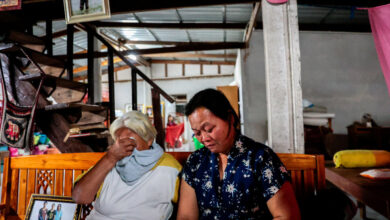WHO finds levels of unsafe sex among adolescents ‘worryingly high’


This puts young people at higher risk of sexually transmitted diseases, unsafe abortions and unwanted pregnancies.
The new data is published as part of a multi-part Research on health behavior in school-age childrensurveyed more than 242,000 15-year-olds in 42 countries in Europe, Central Asia, and Canada from 2014 to 2022.
Reducing ‘widespread’ condom use
The UN health agency said the data showed that “It is clear that the decline in condom use is widespread, spanning many countries and regions.”.
Overall, the proportion of sexually active adolescents who used a condom the last time they had sex decreased from 70 percent to 61 percent in boys and from 63 percent to 57 percent in girls between 2014 and 2022.
Furthermore, nearly one-third of teens reported not using condoms or birth control the last time they had sex.
The report also highlighted socioeconomic differences, with teens from low-income families more likely to report not using condoms or birth control the last time they had sex than teens from more affluent families.
Sex education ‘under attack’
One of the reasons for such a shift in unprotected sex is the reluctance in many countries to provide sex education in schools, WHO maintained.
“Comprehensive, age-appropriate sexuality education is still neglected in many countries, and where it is available, It has come under increasing attack in recent years because of the false premise that it encourages sexual behavior.when the truth is that equipping young people with the right knowledge at the right time will lead to optimal health outcomes related to responsible behaviour and choices,” commented Dr Hans Kluge, WHO Regional Director for Europe.
He highlighted the range of negative consequences such behaviours have, from rising health care costs to disrupted education and career paths for young people.
“By empowering young people to make informed decisions about their sexual health, we ultimately protect and improve their overall health. This is something that all parents and families should want for their children, everywhere,” he concluded.




